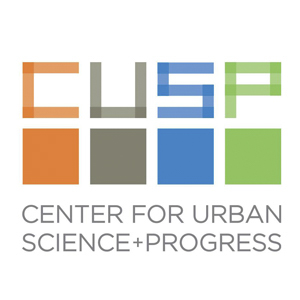NYU Helps Open Neighborhood Innovation Lab

NYU’s Center for Urban Science & Progress partnered with NYC’s Mayor’s Office of Technology Innovation and NYC’s Economic Development Corporation to open the first Neighbourhood Innovation Lab in Brownsville, Brooklyn.
March 27, 2017
NYU is to helping improve urban life throughout New York City by eliminating technical difficulties arising on a daily basis through its collaboration with New York City’s first Neighborhood Innovation Lab.
New York’s Mayor’s Office of Technology Innovation, the Economic Development Corporation and NYU’s Center for Urban Science and Progress recently worked together to open the city’s first Neighborhood Innovation Lab at Osborn Plaza in Brownsville, Brooklyn last week. The first forum open to the community is set to occur in May.
Civil and Urban Engineering Assistant Professor Constantine Kontokosta is CUSP’s Deputy Director and the university’s leader in the Neighborhood Innovation Lab partnership. Kontokosta said that the lab will allow for a forum where the government, educators, community members, researchers and technology companies can collaborate on using technology to improve urban life and address issues occurring throughout the city.
“The Neighborhood Innovation Lab initiative kicked off this week with a series of strategic planning sessions for community leaders,” Kontokosta said. “Over the summer, the first set of new technologies — including CUSP sensors, trash cans that alert sanitation workers when they are full, solar-powered benches that offer free cell phone charging and interactive digital kiosks — will be rolled out in Brownsville’s Osborn Plaza.”
Various community advisors such as Progress Playbook, which helps entrepreneurs further their goals, and the Kinnon Group, which supplements youth development programs will also be working in collaboration with the lab.
“Over the next four months, these community advisors will work with the city to define neighborhood needs and explore how smart city technologies can help improve quality of life and support local economic development,” Kontokosta said.
CAS sophomore Nina Bisbano believes that students and educators are responsible for involving themselves in these types of city-wide initiatives.
“I think that it is our civic duty as a city and a university to advance economic and social equality by doing research into the roots of inequality, and finding ways to fix these issues in order to make these communities more equitable and habitable,” Bisbano said. “NYU’s engagement in this initiative demonstrates its interest to be even more integrated and involved in the city, and emphasizes how it really is a university without walls.”
Kontokosta said that NYU wanted to become involved in this project because CUSP’S goals are very similar to those of the Neighborhood Innovation Lab.
“CUSP’s mission is to both instrument New York City and use existing data from a network of agencies to transform the city into a living laboratory and classroom,” Kontokosta said. “Our goal is to make sense of the vast amount of data it collects to help cities around the world become more productive, more livable, more equitable and more resilient.”
NYU will be primarily involved in data collection and analysis for the lab as part of Kontokosta’s Quantified Community Project, which is also being conducted in Lower Manhattan, Red Hook, Brooklyn and Hudson Yards. Kontokosta said that sites are chosen based on the objectives of the institutions involved.
“Site selection revolves around the goals of supporting neighborhood development and bridging the digital divide for communities that often lag behind,” Kontokosta said. “We believe that this partnership will allow for vast improvements in the observations, analyses and models of cities, leading to improved urban systems and quality of life in New York City.”
CAS sophomore Althea Meer said that she is excited by the lab’s promotion of a crossover between technological innovation and public service. She believes that technology has the ability to impact underdeveloped communities.
“As someone who studies both computer science and English, I am looking for ways to apply my knowledge of data analysis to my interest in social action and public service,” Meer said. “The projects underway at the Innovation Lab open up [a] new possibility for students like me who want to integrate data knowledge into social movement.”
A version of this article appeared in the Monday, March 26 print edition. Email Greta Chevance at [email protected].











































































































































